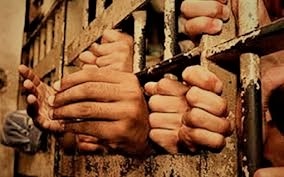Blog

The UK is planning to build jails in Nigeria to repatriate foreign prisoners
Autor: Francesca Mercurio
São Paulo, 22/03/2018
The British Government proposed to the Nigerian counterpart a plan of building a 112 bed-wing in the maximum-security prison of Kiri Kiri in Lagos, after almost 4 years from a former deal stipulated between the United Kingdom and its former colony. The deal was concerning prison system and repatriation of foreign prisoners accused and sentenced in the UK. The project received the green light of the United Nations as they believe it will contribute to an improvement in prison system and prisoners’ conditions in Nigeria. “The provision of this assistance is in line with the government’s security and stability objectives in West Africa,” said the Foreign Secretary Boris Johnson in a written statement to Parliament. In fact, the UK Government will cover the costs of the restructuring of prisons, an amount of £700.000, and implement systems and policies that should be more concerned of human rights as well as the security and safety of prisoners.
Since 2014, when the deal was formerly signed, the main difficulty for UK was to send prisoners back to a country incapable of guaranteeing the security and safety of those prisoners and unable to increase its prison capacity by itself. Given this context the UK attempts could have been subjected to international and national legal pressures and repercussions. Previous deals of a very similar nature already occurred with countries like Albania, Rwanda, Ghana, Jamaica and Libya and presented some common key features. Firstly, to be transferred from a UK jail to another country’s jail that was also signatory of the agreement, the inmate is supposed to be a national of the receiving country and express its own will to be repatriated. This is something that in most of the cases does not happen, given the difficult and insane conditions in which foreign jails reverse. The prisoner’s refusal of being transferred is going to prohibit British government, prison system or the justice from taking him off the country. Secondly, the prisoner can be included in the list for repatriation only if he has already been convicted to a final sentence; and finally, the offence committed in UK must also be considered a crime punishable by imprisonment in the other country. If one of these conditions is not encountered, the transfer of the prisoner cannot occur.
These requirements, other than representing a clause of safeguard for the UK from accusation of non-respect of international laws about human rights, would have allowed the government to save money of UK citizens, that could be reversed in the improvement of other sectors of the country. “I hope this compulsory prisoner transfer agreement will be the first of many arrangements to free up prison spaces and reduce the burden to taxpayers of foreign criminals who should rightly become the responsibility of their own country and not the UK”, said Crispin Blunt, the Prison Minister at the time when those agreements were proposed. But the Minister was not just accounting for the saving of money; he was also looking at the possible “benefits” that such a new practice could have brought to foreigners and foreign countries, in terms of family and friends rapprochement and prisoners’ social rehabilitation and reintegration into their societies, as well as in stimulating the introduction and implementation of appropriate public protection measures in those countries.
But many questions arose. What about that prisoner that spent most or all his life in the UK and created economic, societal and cultural connections with the country he has committed a crime in, rather than with its birth country? What about those prisoners that have an already established family in UK, rather than in the other country? Are families going to be furthered and condemned to suffer? Or are those families also transferred to their national country, together with the inmate, notwithstanding the fact that they are not guilty, but just as a measure to keep the family together? Mary Bosworth, professor of criminology at the University of Oxford, believes that the Human Rights Act should and would be applied to those families of Nigerian prisoner, avoiding an unnecessary and inhuman displacement. In addition, the agreement was also offering the British Government the possibility of returning to those British prisoners arrested for crimes committed in other countries and possibly subjected to inhuman conditions.
Therefore, by coming back to the new deal proposed by the UK, the amount of £700.000, taken from national taxpayers and addressed to the African country, should cover the implementation, support, monitoring and evaluation of the plan of building a jail. Just to clarify the context in which this plan and the huge amount of money insert, in 2016 the number of Nigerian prisoners in UK was of 320 individuals. Related to the country, the percentage of foreign prisoners is 12% of prison population, and only 9% of the entire national population. According to more recent sources, reporting the data until December 2017, “[of] the total prison population of England and Wales […] 9,340 were classified at foreign national offenders (FNOs), of these, 270, or three per cent were Nigerian.”
As this is not such a high number of foreign criminals, it makes more complex and interesting trying to justify the expense of so much money in a foreign country investment. Something that may also be considered as intervention in internal affairs of another sovereign state. At this purpose, the Nigerian Government, through its Nigerian Prisons Service (NPS) spokesman, Francis Enobore, informed that the UK had still to formally notify the Nigerian institutions of its plans to start building projects in Lagos State. Until now no discussion over the specific terms and conditions have occurred. As Enobore affirmed, it is necessary a synergy between the two parts of the deal, to initiate a project like the one UK wants to implement. This reminds that UK cannot just jump into a foreign country and start to build structures or to impose its own positions and rules, even if this may contribute at least with few of their jails “human rights compliant”.
Few days after the UK proposal, the Nigerian President, Muhammadu Buhari was invited by the National Chairman of a recently born Nigerian Party (ANRP- Abundant Nigeria Renewal Party) to turn down the very interesting £700,000 offer of the United Kingdom, by following the example of Jamaica in rejecting a similar proposal. The party has explained its contrary position by highlighting that no benefits will be addressed to Nigeria. Some very characteristic problems of Nigerian prison system, like the overcrowding of inmates will not be adjusted with a project of 112 bed-wing expansion. In a very short time this new building will also be overcrowded, while no difference and change in the judicial system would have occured. Moreover, the Chairman of the ANRP, Tope Fasua, is asking for a more functional justice and prison system, that will correct all the problems and dysfunctions of the country toward the achievement of required standards by itself, and with no external aid or by abdicating the responsibility and the problems of the country to others, looking for a solution coming from them rather than from Nigeria itself.
Despite all, the UK action follows a European trend of finding original and creative alternatives to extradite immigrants by sending them back home or by trying to prohibit them overpassing their own national borders. It is not a causality that part of the 83 Nigerian inmates deported at the beginning of 2017 from UK were related to problems of small crimes (like trafficking drugs), or to irregular immigration and expired documents, while others were sent back to their homeland, just few time before their prison sentences were close to end. While over 240 Nigerians stranded in Libya were sent back to the country from EU forces, even before reaching the European lands. Therefore, sending foreign people back home is a mechanism that has found much of its support in everyday expressions used among European citizens when questioned about offering help and assistance to those escaping and dislocated people. It has ended up by looking at foreigners in a negative way and by very often associating them to criminals, whom it may be better to keep out from national borders.
In conclusion, it may seem that, over the last four years, United Kingdom has opted for a different strategy to achieve its objective and solve the problem of overcrowding in jails. Instead of simply establishing agreement of transfer with other countries to free the British jails from foreign prisoners and save money of taxpayers, as claimed by political representatives as the main objective of this policy; the government has opted for the opposite, spending a lot of taxpayer money in investments for improvements abroad. This attitude has been ineffective, at least until now, as Nigerian government (like other state already did before) have not really showed any interest in implementing the agreement and initiate the structural and legislative changes. To keep going with this project will mean just more waste of money of citizens, that may feed up accusation against UK for its intromission abroad. Furthermore, the last deportations of Nigerians occurred in a context in which UK has not considered the prisoners’ conditions of a ‘still colonial’ prison system, as the constitutional lawyer- Prof. Itse Sagay– told. This will put some shadow over the UN evaluation of the UK-Nigeria deal; an agreement that until now has subjected some inmates to dehumanising treatments and experiences, rather than improving their lives and assist the development of the African country.
Francesca Mercurio is a PhD candidate at the International Relations Institute of the University of São Paulo (IRI-USP) and at the International Relations Research Centre (NUPRI).







